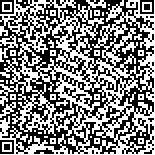|

二维码(扫一下试试看!) |
| Study on the Advanced Treatment of Papermaking Effluent by Membrane Separation Technology |
| |
| DOI:10.11981/j.issn.1000-6842.2013.02.15 |
| Key Words:papermaking effluent; flocculation; membrane separation; advanced treatment; reuse |
| Fund Project:陕西省自然科学基础研究计划项目(2012JQ2020);2012西安市产业技术创新计划项目(CX12594);2012年大学生创新创业训练计划项目(201210708008);陕西省教育厅专项科研计划项目(11JK0976)。 |
| Author Name | Affiliation | | 王 森 | 陕西科技大学轻工与能源学院,陕西省造纸技术及特种纸品开发重点实验室,陕西西安,710021 | | 李新平 | 陕西科技大学轻工与能源学院,陕西省造纸技术及特种纸品开发重点实验室,陕西西安,710021 | | 张安龙 | 陕西科技大学轻工与能源学院,陕西省造纸技术及特种纸品开发重点实验室,陕西西安,710021 | | 贾程瑛 | 陕西科技大学轻工与能源学院,陕西省造纸技术及特种纸品开发重点实验室,陕西西安,710021 |
|
| Hits: 4639 |
| Download times: 1556 |
| Abstract: |
| The optimum condition for the advanced treatment of the papermaking effluent from secondary biochemical treatment stage by using flocculation precipitation pretreatment and membrane separation technology was studied. The result showed that polyacrylamide (CPAM) and poly aluminum ferric chloride (PAFC) were 1.5 and 150 mg/L respectively, the effluent could meet the requirements of ultrafiltration (UF) after flocculation. The filtration efficiency was better when operating pressure of ultrafiltration membrane was at 0.04~0.10 MPa, the membrane flux was between 12~17 L/h. The effluent after nanofiltration (NF) treatment and reverse osmosis(RO), electrical conductivity droped to about 12 μS/cm, the CODCr removal reached more than 90%, the turbidity of the effluent was undetectable, the treated water quality was close to or even better than the clean water, and fully met the quality standards of reused water. The CODCr of concentrated water was 85.3 mg/L after the RO treatment and met the requirement of the new National Papermaking Industry Effluent Pollutants. |
| View Full Text View/Add Comment Download reader HTML |

